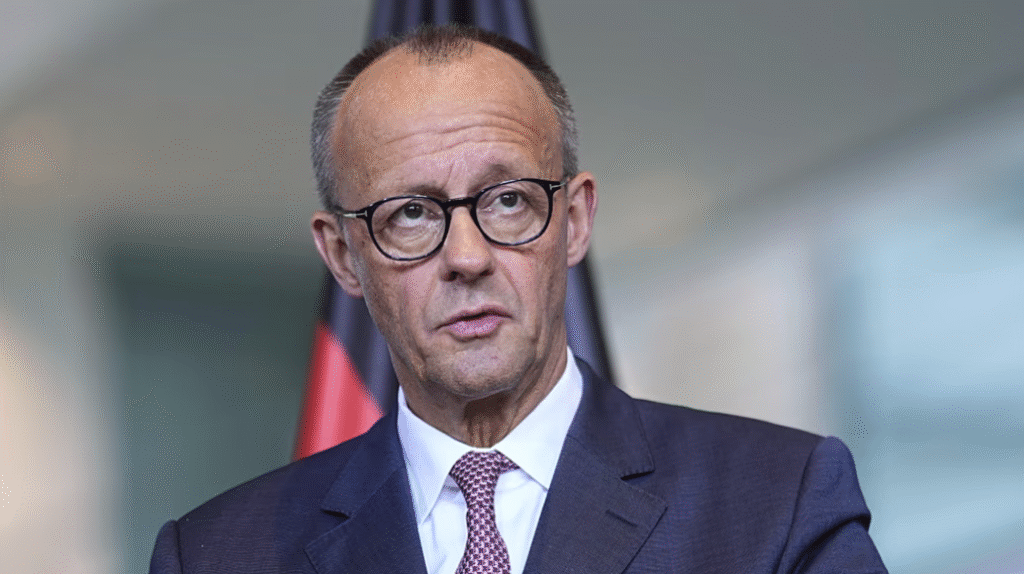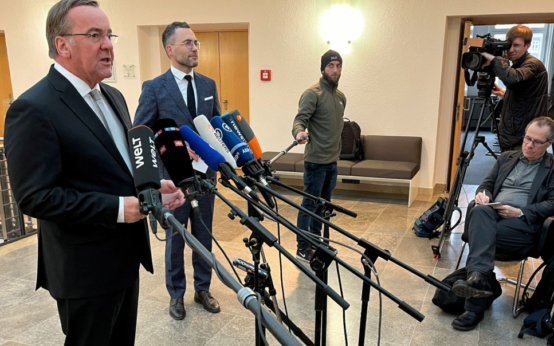Germany’s Central Council of Jews a major Jewish advocacy organization—has pressed Chancellor Friedrich Merz to reaffirm Germany’s support for Israel amid growing public debate over how Germany should respond to the Gaza conflict. The Council urges Merz not only to denounce antisemitism but to ensure political, moral, and policy backing for Israel. The call reflects tensions inside German politics and broader concerns about rising antisemitic rhetoric.
Why Germany’s Jewish Community Sees Support for Israel as Crucial Now
Germany has long carried a special responsibility toward Jewish communities and to Israel, shaped by the legacy of the Holocaust. The Central Council of Jews argues that criticism of Israel can cross a dangerous line when it becomes a cover for antisemitism. They worry that some public campaigns and media narratives that heavily condemn Israel risk encouraging hatred toward Jews generally. Therefore, they insist that German leaders must make clear distinctions between legitimate criticism of Israeli government policies and outright antisemitic attacks.

They believe backing Israel is part of upholding Germany’s democratic values and protecting its Jewish citizens from rising hate speech and violence. This context amplifies every statement by political leaders about Israel—in particular, any perceived wavering of support.
What Chancellor Merz Has Said and Why Jewish Leaders Are Unsatisfied
Chancellor Merz has made a number of statements that combine support for Israel’s security with calls for humanitarian considerations. He also expressed concern about the humanitarian crisis in Gaza and urged Israel to allow greater access for aid.
However, for many Jewish leaders, these remarks do not go far enough. They want clearer public commitment from Merz to ensure that Germany not only speaks out against antisemitism but also takes action—through diplomatic support, policy decisions, or legislative efforts to defend Israel and Jewish communities domestically. Some feel that past steps especially suspending certain arms exports or criticizing Israel’s policies—have weakened Germany’s traditional stance of saturation reason of state toward Israel.
How German Public Opinion, Politics, and Parties Are Reacting
Public opinion in Germany has shifted. While many Germans still support Israel’s right to defend itself, there is also increasing concern over civilian casualties, humanitarian crises, and prolonged conflict. That shift puts pressure on political leaders, including Merz, to balance support for Israel with empathy for Palestinians. Some voices in civil society and media demand tougher criticism of Israel’s actions, especially when they touch on human rights violations.

Political parties inside Germany also show divisions. Merz’s own conservative coalition includes members who emphasize strong support for Israel as a moral imperative. Others argue Germany must better enforce arms export controls or press for ceasefires to avoid contributing to civilian suffering. Opposition parties—Social Democrats, Greens, Left Party, often advocate for a more nuanced policy.
What Stronger Support from Merz Might Look Like According to Jewish Leaders
Jewish community leaders are suggesting several steps to solidify Germany’s stance. First, they want clearer public reaffirmations from Merz that Germany will not abandon Israel as an ally. They believe leaders must explicitly disavow any rhetoric that conflates criticism of Israel with antisemitism.
They call for policy consistency: even when Germany suspends arms exports or criticizes certain military tactics, Jewish leaders expect these actions to be paired with robust diplomatic, humanitarian, and moral support for Israel’s right to security. Third, they demand that Germany better enforce protections for Jewish citizens, especially given the rise in antisemitic incidents.
What This Conflict Reveals about Germany’s Historic Responsibility
Germany’s relationship with Israel is deeply shaped by history. The Holocaust haunts national memory and informs a broad consensus across most major parties that antisemitism must be fought, and that supporting Israel is part of Germany’s moral duty.
However, this historic obligation clashes with emerging pressures: from global human rights norms, public concern over Gaza’s humanitarian crisis, demands of diplomatic balance, and domestic calls for more critical foreign policy. Chancellor Merz finds himself required to navigate a tightrope: preserving Germany’s commitment to Israel while responding to legitimate criticism, safeguarding the Jewish community’s safety, and addressing international expectations of accountability and humanitarian law.


 German Defence Minister Boris Pistorius ‘Deeply Disturbed’ by Alleged Misconduct in Elite Paratrooper Unit
German Defence Minister Boris Pistorius ‘Deeply Disturbed’ by Alleged Misconduct in Elite Paratrooper Unit  German exports stall in October as shipments to US and China drop sharply
German exports stall in October as shipments to US and China drop sharply  Istanbul Hotel Evacuated After German Tourists Found Dead Amid Growing Safety Concerns
Istanbul Hotel Evacuated After German Tourists Found Dead Amid Growing Safety Concerns  Meta’s AI Chief Urges Teens to Spend More Time Building
Meta’s AI Chief Urges Teens to Spend More Time Building  Trump Announces Gaza Peace Deal Israel Hamas Sign Agreement
Trump Announces Gaza Peace Deal Israel Hamas Sign Agreement  Germany’s Johann Wadephul Declares Support for Israel
Germany’s Johann Wadephul Declares Support for Israel